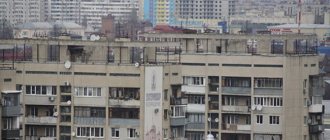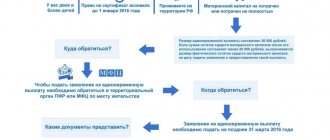Free and unlimited
The average cost of an apartment in large Russian cities has exceeded 3 million rubles. Not everyone for whom the housing issue is relevant can buy an apartment for cash or with a mortgage. But there is one way to get housing for free
– transfer municipal housing into private ownership.
In fact, of course, the family can already use their apartment without restrictions, but they cannot dispose of it (rent or sell it). In 2020, 22% of the total number of non-privatized apartments in Russia remained.
For the first time, Russians had the opportunity to privatize an apartment in 1991, when the corresponding Law of the Russian Federation of July 4, 1991 N 1541-1 “On the privatization of housing stock in the Russian Federation” was adopted.
You can download the text of the law here:
| “ Law of the Russian Federation “On the privatization of housing stock in the Russian Federation” » Downloading will begin immediately after clicking on the PDF icon |
| “ Law of the Russian Federation “On the privatization of housing stock in the Russian Federation” » Downloading will begin immediately after clicking on the Word icon |
In simple words, privatization is the free transfer of an apartment owned by the state (usually represented by a municipal entity) into the ownership of the residents of this apartment.
Housing can be privatized under several conditions
, and the main ones are:
- all owners who plan to obtain ownership of an apartment have not previously used this right;
- they are registered in an apartment that was transferred to them for use under a social tenancy agreement;
- housing does not belong to some categories (service, emergency, etc.).
The latest legislative changes in the privatization process date back to 2020, when it was made indefinite
. Before this, free privatization was supposed to be completed even earlier, but its cancellation was postponed 5 times. According to current legislation, privatization is free and unlimited for all citizens of the Russian Federation.
And although the privatization procedure is quite common (over 25 years more than 30 million apartments have been privatized
), it still has many nuances that you need to know about. Moreover, now you can do this at any time.
Are there any risks for the client?
Every person who has decided to shift authority to real estate agencies for collecting and transferring all documents for privatization should know the possible risks.
The main ones are:
- The likelihood that the agency will not provide the contract on time, for example, due to the agent’s increased workload or illness.
- Refusal of the municipality to privatize a real estate property.
In practice, this is observed if the agent:
- prepared documents for the administration in bad faith;
- did not submit a complete set of certificates;
- didn’t take into account all the nuances and so on.
The possibility that specific real estate will be transferred to third parties.
Important: this outcome can be easily avoided if a power of attorney is correctly drawn up at a notary’s office.
A citizen who has a social lease agreement and wants to privatize a specific property can contact real estate agencies to conclude an agreement.
After this, all responsibilities for preparing documents fall on authorized employees, and the person himself will only have to sign a power of attorney for the agent at the notary’s office and go pick up the contract.
Blitz - tips:
- if a person does not have free time and certain knowledge in the field of privatization, then it is better to draw up an agreement with a real estate agency;
- it is important to carefully draw up a power of attorney for the agent, so that this document gives him the right to exclusively request and transfer documents;
- when a citizen does not trust a real estate agency, then it is advisable to turn to another company or do the whole procedure independently.
Didn't find the answer to your question? Find out how to solve exactly your problem - call right now: +7 (Moscow) +7 (812) 309-53-42 (St. Petersburg) It's fast and free!
What and to whom can be privatized
The basic rule of privatization is that the housing that the family receives under a social tenancy agreement is transferred into ownership. This is the housing that the state provides to different categories of people in need of improved housing conditions (the list is large, the main ones are the poor who are not able to buy their own apartment).
Get housing under a social rental agreement
as a low-income family it is now very difficult (even in Moscow apartments are given to those on the waiting list who were registered in the early 90s), in other cases it is still possible:
- eviction from other social housing, which is recognized as unsafe and has been resettled;
- various social programs at the local level (providing housing for doctors, teachers, etc.);
- providing housing for orphans, etc.
As soon as housing has been received under a social tenancy agreement, you can immediately ( except for orphans)
, they will be able to do this only after 5 years).
There are several requirements for employers
who can privatize an apartment:
- citizenship of the Russian Federation;
- registration in an apartment under a social tenancy agreement (actual residence is not necessary);
- Previously, the right to free privatization was not used (by any of those who will privatize housing);
- if one of the residents does not want to participate in privatization, his refusal is required.
Housing will be transferred to the ownership of all apartment residents who have not provided a waiver of privatization, including minor children.
The situation with minors is special - they also receive a share in privatization, and it is possible not to include a child in privatization only with the permission of the guardianship authorities
(which, traditionally, they almost never give).
Therefore, an exception has been made for minors - upon reaching the age of 18, they again receive the right to privatization.
There are also several requirements
:
- the apartment has not previously been privatized and is in municipal ownership;
- the house has not been assigned emergency status;
- is not in a hostel, in a closed military city, is not a service apartment;
- does not apply to a stationary social protection institution in rural areas (boarding house).
In addition, in some cases the authorities do not give consent to the privatization of apartments in buildings of cultural or historical value
. There is no direct ban on the privatization of such housing, but refusals do occur.
Prices for consultations on privatization issues through the court in Moscow
For the help of a lawyer in privatizing an apartment, you should contact only specialists who are competent in resolving real estate issues. The privatization of apartments refers to the procedure for re-registration of state real estate into private ownership.
When carrying out this process, it is necessary to strictly comply with all formalities, as well as legal requirements. Since laws in our state change frequently, it will be very difficult for you to understand all the intricacies of the legislation without the help of a privatization lawyer.
Privatization is a complex procedure during which unexpected difficulties may arise. At first glance, everything is simple: you need to draw up and prepare a package of documents, submit them to a government agency and wait for the issuance of a certificate recognizing the right to register real estate as a property. But the privatization period may be delayed due to unexpected difficulties. The most common are the following:
- refusal of the registered tenant from privatization
- absence of a mark on the cadastral registration of the apartment
- incorrect preparation of documents for privatization (non-compliance with legal requirements)
- refusal by government agency
All of these difficulties can be resolved in court - you will need the services of a lawyer representing your interests in disputes over housing issues. A specialist offering apartment privatization services will prepare documents, provide full support and control of the transaction, and also carry out other activities if the situation requires it.
Registration of real estate ownership may take several years. If you seek legal assistance in privatizing an apartment, the procedure will take less time. A privatization lawyer will speed up obtaining a certificate of ownership if you have:
- concluded social rental agreement
- written consent of all citizens who have registration in this apartment
- registration order
The specialist will be able to speed up the deadline for submitting documents and their registration, and as a result of the procedure, you will become the owner of the property and will have the opportunity to dispose of it at your own discretion.
You can privatize real estate owned by the state or region. A service or departmental apartment can be converted into your own only with the consent of the legal owner. Since the object is registered in the state real estate register under the name of an organization, the assignment of rights must be carried out with the consent of the legal owner.
Dormitories, emergency funds and apartments in closed communities are not subject to privatization. You can challenge the status of the occupied space in court, for which the help of a specialized lawyer is most in demand. The organization that owns the property must, at the request of the resident, transfer the apartment to the balance of the municipality. After which a new social rental agreement is concluded, which serves as the basis for participation in the program.
The issue of privatization of an apartment for children under state care, registration of ownership of apartments for military personnel, and the possibility of reverse privatization are considered at an online consultation. You should not enter into the legal field without enlisting the support of a specialist. Real estate ownership problems contain significant risks that can be avoided after receiving competent advice.
Housing owned by housing cooperatives can be privatized only if the entire share is paid. After this, you can begin registering ownership of the property. The peculiarity of such privatization is that the real estate was not owned by the state. Such real estate can only be registered in the name of a shareholder.
Housing is provided to military personnel during their service in the armed forces. After retirement, a military man has the right to privatize an apartment. Moreover, all family members participate in privatization. The exception is apartments located in closed military camps.
What are the regulations for the privatization of residential premises in dilapidated buildings? According to Federal Law No. 1541, apartments in dilapidated buildings are not subject to privatization. But if the housing is dilapidated, that is, its wear and tear is more than 70%, then such real estate can be privatized.
To pay for services provided by various organizations when preparing documents, you can use the “Calculation” system or through ERIP.
The system provides the ability to pay in cash, electronically, or using a bank card.
You can make a payment at an ATM, bank teller, or via the Internet. Some intermediary firms provide the opportunity to privatize housing in installments.
You can submit an application for privatization of real estate through the State Services portal. To do this you need to register on this site.
The entire package of documents that must be submitted during a personal visit is attached to the application. All privatization participants at the MFC must sign the agreement.
Privatization of real estate has its pros and cons. It is necessary to weigh all the pros and cons for your specific case.
If you decide to transfer your home into ownership, you can do it yourself when visiting the MFC, by transferring documents online through the State Services website, or provide this process to special real estate agencies by paying for the service.
Today, the state provides the opportunity to obtain real estate for free in several ways. One of these options is to transfer the apartment into the ownership of citizens through privatization. However, current legislation provides for a number of exceptions regarding this type of transactions. So, what kind of housing cannot be privatized?
- Premises located in emergency buildings;
- Housing located in dormitories;
- Apartments located in closed military camps;
- Living space included in the list of official premises;
- Apartments provided to employees of the organization as corporate ones;
- Living quarters in houses that are architectural monuments.
Thanks to participation in the privatization of an apartment, its future owner can receive an absolutely legal right to sell the property, exchange it or rent it out.
Housing can also be registered as an inheritance or used as collateral when obtaining a loan.
READ MORE: How to apply for private ownership and receive a subsidy in 2020
Moreover, the owner can improve his living conditions by remodeling or purchasing a more spacious premises.
It is worth considering that all citizens have the right to exercise the right to free privatization of an apartment only once in their life. Even if a person for some reason refuses property registered as private property, his right to free transformation of property is lost. The exception is minor children who have the right to participate in this process again.
Privatizing an apartment is not as simple as it seems at first glance. To formalize such a procedure, you need to meet the parameters established by law, as well as fulfill a number of necessary requirements. So, to participate in privatization you must:
- Have Russian citizenship;
- Have the right to use property under social rental conditions;
- Not previously participate in privatization;
- Obtain the consent of all family members living together;
- Receive a refusal from one of the family members who participated in the privatization.
Info
All adults living in this premises have the right to refuse to participate in privatization. In this case, the apartment will become the property of other persons claiming to be the owner. Minor residents, in turn, can also be included in the program, even if they are discharged from the housing unit.
Necessary documents and privatization procedure
The procedure for privatizing apartments in itself is not particularly complicated - you need to collect a package of documents and submit them along with an application to the relevant government agency.
It's all about the package of documents, it is very extensive. In addition to the application (it is drawn up on the spot upon submission), you need to collect the following papers
:
- passports or other identification documents - for the applicant and all family members who are registered in the apartment;
- if a representative submits documents for someone, a notarized power of attorney for such actions;
- social tenancy agreement for a privatized apartment;
- if the apartment was received before 2005 - a warrant for its receipt. If it is not there, an extract or copy of the order of the executive authority issued by the archive;
- an extract from the house register for the period from July 21, 1991 to the date of registration of the applicant;
- certificate of non-use of the right to privatize housing at previous residence addresses;
- written consent (or refusal) of everyone registered in the privatized premises;
- technical passport for the apartment;
- floor plan;
- extract from the Unified State Register of Real Estate (not always needed);
- copy of personal account (certificate of absence of debts).
If in the case of passports and birth certificates there are usually no problems, then with other documents there may be difficulties.
So, a warrant to move into the apartment
Not everyone has preserved it, and if housing was received before 2005, it will be demanded. You'll have to go to the archives, but the warrant may not be there either. True, in some cities the administration itself requests this document (it is enough to mark the application that there is no warrant).
Lost social tenancy agreement
It’s easier to restore - all the data is in the registers, just contact the local administration. But there is one peculiarity here too. In the contract, one of the residents is indicated as the main tenant, and if he refuses the right to privatization, the social tenancy contract will have to be reissued. Usually it is enough to draw up an additional agreement to the main contract and have it approved by the administration.
Extract from the house register
and a certificate of non-use of the right to privatization is needed only if the extract from the personal file indicates that the applicant lived in another housing, which in theory could be privatized.
Regarding written refusals of privatization
, then a strange situation has developed in the regions: in some places such a refusal must be notarized, in others a simple written form is sufficient.
Certificate of absence of debts
may concern not only the usual utilities. Some municipalities have introduced a fee for social hiring on their territory - it comes out to about 10-15 thousand rubles per year. If they are not paid on time, privatization will be refused.
Problems with the cadastral passport
and an extract from the Unified State Register of Real Estate usually does not happen, but in rare cases there are errors in the cadastre. Then you first need to correct errors, and then collect these documents.
It often happens that some things can only be proven in court. For example, if it is not possible to take an extract from the house register since 1991, the archives may simply not have been preserved.
If the documents are collected, there will be no further problems, and the actions will be as follows:
- submit a package of documents (including an application that will be drawn up on the spot) to the privatization department of the local administration or MFC;
- you will need to choose what form of ownership
the apartment is transferred to - joint or shared, and if shared - then in what shares; - within 46 days, officials will prepare
documents for the transfer of the apartment; - then transfer agreement
- it means that the state agrees to transfer the apartment into the ownership of the applicants; - with the transfer agreement, you can go to Rosreestr
, MFC or the State Services website and register ownership.
Within 10 days, Rosreestr will register ownership, and the owners will now be able to fully manage their apartment.
Is it profitable to privatize an apartment through real estate agencies?
Of course, it is cheaper to independently request and collect all certificates, resolutions, notifications, etc. from various departments than when a real estate agency does this for a citizen.
However, the involvement of specialists allows:
- Do not overlook any certificate or other form, without which your privatization application will be refused.
- Have all documentation on hand in a timely manner.
- Avoid hassle, standing in line and visiting a number of government agencies.
- See in a timely manner any errors or inaccuracies in the received certificates, inventories, notifications, etc.
- Prepare your application correctly.
An important point: in some cases, for example, poor legal skills in preparing documents or lack of time, you should not hesitate to contact an agency.
Price issue
Although privatization is formally declared to be free, in reality you need to spend money. The total cost depends on what stage the paperwork is at before the start of the process.
You will have to spend money on preparing the following documents:
- technical passport – minimum 1,200 rubles;
- extract from the Unified State Register of Real Estate – 350 rubles;
- power of attorney (if someone cannot submit documents in person) – 1,500 rubles;
- notarized refusal of privatization – from 3,000 to 4,000 rubles, depending on the number of those who refuse;
- The state fee for registering property rights is 2,000 rubles, when submitting an application through State Services - 1,400 rubles.
In total, in the most economical option you will have to spend 1,400 rubles
– this is if all the documents are available, and the application for registration is submitted through “Government Services”.
The principle of gratuitousness
The basis for the participation of citizens in privatization transactions is the Law of the Russian Federation No. 1541-1. The key principles of privatization, in addition to accessibility and one-time use, also include the right to make such transactions free of charge. What does this mean in practice? The legislator provides for the following nuances of re-registration of real estate rights for tenants of municipal apartments:
- transfer of housing into the ownership of citizens completely eliminates the obligation to pay the price of the property;
- the principle of gratuitousness applies to each participant in the privatization transaction, regardless of the number of tenants or the length of their stay in the municipal apartment;
- for the transfer of expensive real estate into the ownership of tenants, the state does not levy income tax (from the moment of registration of rights, only the obligation to pay property tax annually arises).
Also on the topic: How to privatize an apartment: step-by-step instructions
Since the issue of completing the privatization program has been repeatedly raised in recent years, there has been talk of preserving the right to re-register housing on a paid basis. This implied the obligation to pay the cost of the transferred municipal property based on its inventory or cadastral value.
Since such a rule would significantly violate the rights of citizens who did not have time to take part in the privatization program before March 2017, it was decided to remove any restrictions on the deadlines for submitting documents. At the same time, the principle of free re-registration of rights to living space was confirmed.
Does this mean that employers will not have to incur any expenses at all during the privatization transaction? Law No. 1541-1 exempts citizens from having to pay the cost of housing to the municipality, but does not eliminate the obligation to pay additional costs, including fees and charges.
How much does it cost to privatize an apartment in 2020?
Privatization of an apartment costs differently, depending on the circumstances relating to a particular property. In addition, in some cases additional costs may be required. You will have to pay when registering a power of attorney, agreeing on redevelopment, liquidating debt, as well as conducting legal proceedings when several parties apply for privatization.
The Law of the Housing Code of the Russian Federation “On Privatization” does not contain a clearly formulated list of papers required in order to become the official owner of living space. Therefore, for a complete list of documents, you should contact the municipal authorities at the location of the apartment or house. If it is possible to obtain ownership rights at the Multifunctional Center, the list of required papers should be clarified on the website of the MFC branch.
Privatization of housing in St. Petersburg in 2020
- there is a social rental agreement with the applicant;
- the living space is in municipal or state ownership;
- the citizen has not yet exercised the right to participate in the privatization process on the territory of the Russian Federation (this norm is not relevant for persons under 18 years of age);
- residential premises become the property of a citizen of the Russian Federation;
- often there are other people living in the premises, then it is necessary to obtain consent to carry out legal actions from everyone registered at this address, including minors aged 14 to 18 years.] Minors who exercised the right of privatization before the age of 18 retain the opportunity free receipt of another premises in the property, after receiving full legal capacity.
In this case, you must first obtain the necessary documents from the representative office of Rosreestr, BTI in St. Petersburg, and also take with you the decision of the municipality or administration authorizing the right to carry out registration actions. Housing can be privatized only if there are no debts on utility bills or other payments related to housing. If there are debts on your personal account, registration of ownership will be denied until you have paid in full.
We recommend reading: Benefits for Pensioners in St. Petersburg in 2020 for Travel







